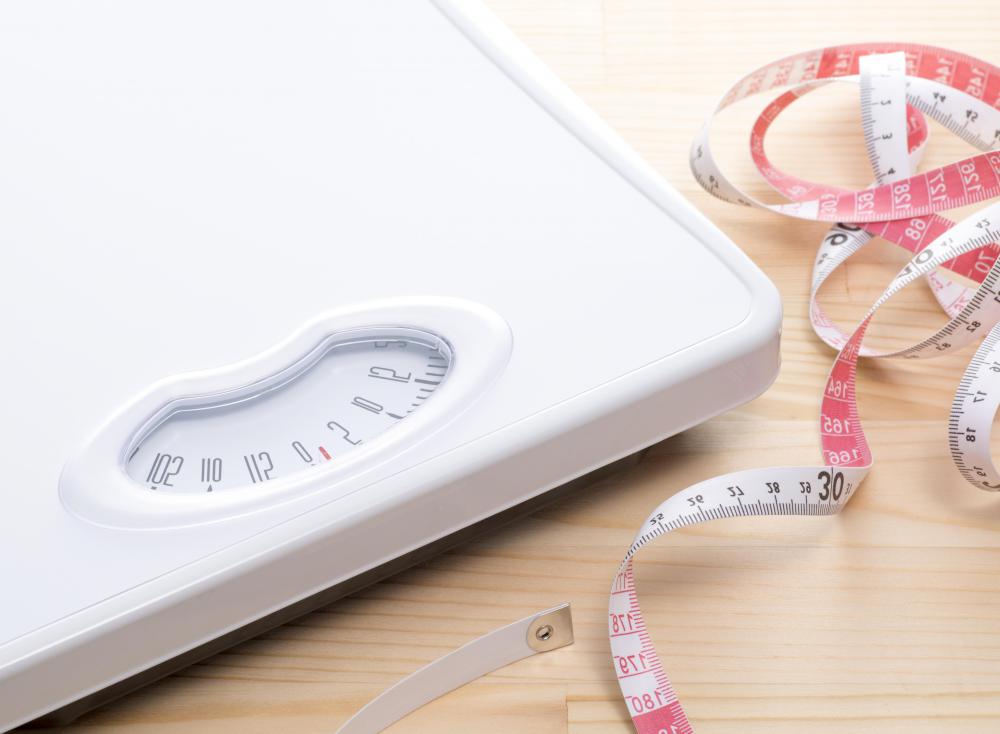At WiseGEEK, we're committed to delivering accurate, trustworthy information. Our expert-authored content is rigorously fact-checked and sourced from credible authorities. Discover how we uphold the highest standards in providing you with reliable knowledge.
What Are the Symptoms of Body Dysmorphic Disorder?
Body dysmorphic disorder (BDD) is a debilitating psychiatric illness that significantly impacts a person’s quality of life. Symptoms of body dysmorphic disorder not only disturb one’s personal and professional relationships, but they can dictate one’s lifestyle choices. For example, those with this disorder might obsess over and need constant reassurance about their appearance. They might wear too much makeup to cover perceived flaws or seek unnecessary cosmetic surgery. Treatment for body dysmorphic disorder often involves drug and cognitive behavioral therapies and may even require hospitalization.
Body dysmorphic disorder is a psychiatric condition characterized by unrealistic or unreasonable views about one's body image. Flaws and imperfections, whether they are real or imaginary, of one’s own body are an obsession for someone with BDD. Their reaction to these imperfections influences their behavior, oftentimes to the extreme.

Individuals with BDD will often experience significant stress and anxiety over their appearance. Sometimes the anxiety causes the person to develop obsessive, repetitious behaviors. For instance, if the person has minor dry skin that may not be noticeable to the casual observer, he or she may incessantly rub the dried area or pick at it. If an individual is self-conscious about his or her hair, the person may constantly run his or her fingers through it, pat it, or purposely seek out a mirror to look at it.

Social situations often cause the individual to feel increased stress due to their lack of confidence about their appearance. Some people seek constant encouragement about their looks. In some cases, the individual may shun social interaction altogether. Getting someone with BDD to pose for pictures or attend social gatherings can be a challenge.

Exaggerating the effect of a minor imperfection is common for those with symptoms of body dysmorphic disorder. Say, for instance, the individual is experiencing a minor acne breakout. He or she may only have a couple blemishes on his or her face, but the individual may view his or her appearance as much worse than it actually is. Oftentimes, females with BDD have a compulsion to wear excessive makeup to cover up what they perceive to be hideous flaws, when in actuality the perceived flaw may be barely noticeable.

It is not uncommon for individuals with body dysmorphic disorder to pursue unnecessary plastic surgery. Unfortunately, individuals who undergo surgery to correct a perceived flaw are often left unsatisfied and either focus more intently on the area in question or shift their focus to another perceived flaw. Additional symptoms of body dysmorphic disorder can include obsessing over a single body part, like the nose, comparing oneself to others, and constantly primping and grooming.
There is no definitive cause for the symptoms of body dysmorphic disorder. Some medical organizations, including the Mayo Clinic, speculate causes of body dysmorphic disorder may include genetic predispositions, alterations in brain chemistry, and cultural influences. Body dysmorphic disorder is a diagnosis that is significantly underreported. Individuals with BDD oftentimes receive a dual diagnosis of BDD and depression or obsessive-compulsive disorder (OCD).
Treatment for the symptoms of body dysmorphic disorder is twofold. Individuals are usually placed on an antidepressant medication to help alleviate symptoms, including anxiety. Cognitive behavioral therapy is used to educate the individual about his or her condition and promote healthy coping skills. Hospitalization can sometimes be necessary if the person proves incapable of caring for him or herself, such as exhibiting self-destructive behaviors.
AS FEATURED ON:
AS FEATURED ON:














Discuss this Article
Post your comments